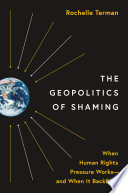

Most ebook files are in PDF format, so you can easily read them using various software such as Foxit Reader or directly on the Google Chrome browser.
Some ebook files are released by publishers in other formats such as .awz, .mobi, .epub, .fb2, etc. You may need to install specific software to read these formats on mobile/PC, such as Calibre.
Please read the tutorial at this link: https://ebookbell.com/faq
We offer FREE conversion to the popular formats you request; however, this may take some time. Therefore, right after payment, please email us, and we will try to provide the service as quickly as possible.
For some exceptional file formats or broken links (if any), please refrain from opening any disputes. Instead, email us first, and we will try to assist within a maximum of 6 hours.
EbookBell Team

5.0
108 reviewsWhen a government violates the rights of its citizens, the international community can respond by exerting moral pressure and urging reform. Yet many of the most egregious violations appear to go unpunished. In many cases, shaming not only fails to induce compliance but also incites a backlash, provoking resistance and worsening human rights practices. The Geopolitics of Shaming presents a new theory on the strategic logic of international human rights enforcement, revealing why and how states punish violations in other countries, when shaming leads to an improvement in human rights conditions, and when it backfires.
Drawing on a wide range of evidence―from large-scale cross-national data to original survey experiments and detailed case studies―Rochelle Terman shows how human rights shaming is a deeply political process, one that operates in and through strategic relationships. Arguing that preexisting geopolitical relationships condition both the causes and consequences of shaming in world politics, she shows how adversaries are quick to condemn human rights abuses but often provoke a counterproductive response, while friends and allies are the most effective shamers but can be reluctant to impose meaningful sanctions.
Upending conventional wisdom on the role of norms in world affairs, The Geopolitics of Shaming demonstrates that politicization is integral to―not a corruption of―the success of the global human rights project.